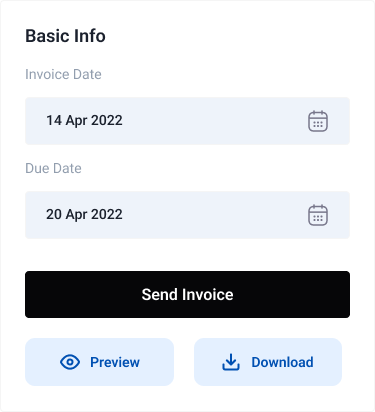Did You Know?
We design Fincto for the readers, optimizing not for page views or engagement
We design Fincto for the readers, optimizing not for page views or engagement
A corporation is a legal entity in business, separate from shareholders. Both domestic and foreign businesses in India are required to pay corporate taxes under the Income-tax Act. Domestic companies are registered under the Indian Companies Act, encompassing core operations and management within India.Foreign companies are not incorporated under the Indian Companies Act and have a base outside India. They are subject to corporate tax in India only if income is generated within the country, while domestic companies are taxed on global income.
In India, corporations pay corporate taxes based on deductions like depreciation, administrative expenses, and salary outlays. The rate depends on annual turnover and corporate income.
Corporate tax crucial for revenue generation in developing economies, supporting public initiatives.
Corporate taxation protects personal income tax brackets, benefiting wealthy individuals.
Corporate taxes may serve as democratic control against excessive corporate dominance.
Indian business tax rates breakdown by various category
Companies under 1956 Act face 30% tax rate, 7% surcharge for revenue between ₹1-10 crore, and 12% for earnings exceeding ₹10 crore.
Foreign corporations pay corporate income tax on earnings, with royalties and fees imposing a 50% tax rate, and an additional 2% surcharge for revenue between ₹1 and ₹10 crore.
Filing corporate tax in India requires providing required information:
Company information, including address, number, incorporation date, and shareholders' shares.
Corporate income and expenses, including salaries, supplies, and travel.
Shareholder dividend information.
Account information for accounts, receivables, and payables.
Corporate capital asset price details.
Information about applicable tax rates.
The corporate tax rates in India for the assessment year 2024-25 are as follows:
Domestic companies with a turnover up to ₹400 crores face a 25% corporate income tax rate, while those exceeding ₹400 crores face a 30% tax. Surcharges and a 4% health and education levy apply, and a 15% Minimum Alternate Tax (MAT) is applicable.
Fincto offers hassle-free corporate taxation management with a team of tax experts, online process, and data security. Support staff is available to address queries and ensure data protection. India’s corporate tax landscape requires Fincto’s expertise for compliance and optimal planning.
In addition, you can submit investment proofs, asset transaction documents, TDS certificates, interest income statements, and more.
Authentic document showcasing goods in transit.
Mandatory for road transportation.
Necessary for rail, air, or ship transit.
GSTR1 is the form used for tax returns on outward supplies, encompassing both interstate and intrastate B2B and B2C sales. It also includes details of purchases under reverse charge and inter-state stock transfers made during the tax period. Late filing of GSTR1 can result in a late fee, which is collected in the subsequent open return, Form GSTR-3B. Since January 1, 2022, taxpayers cannot file Form GSTR-1 if they haven't filed Form GSTR-3B in the preceding month.
This amendment form corrects any discrepancies between the GSTR-1 of a taxpayer and the GSTR-2 of their customers. The filing window for GSTR1A is between the 15th and 17th of the following month.
Monthly GST returns for inward supplies are filed using this form. It contains taxpayer information, return period, and detailed invoice-level purchase information related to goods and services separately.
This auto-generated tax return compiles purchases and inward supplies made by a taxpayer based on the information from their suppliers GSTR-1.
An auto-generated document that acts as an Input Tax Credit (ITC) statement for taxpayers, facilitating faster return filing, minimizing errors, easing reconciliation, and simplifying compliance.
This form is used to file consolidated monthly tax returns. It contains the taxpayers basic information, turnover details, final aggregate-level inward and outward supply details, tax liability under CGST, SGST, IGST, additional tax (+1% tax), ITC, cash, liability ledgers, and details of other payments like interests, penalties, and fees.
This is a tax notice issued by the tax authority to a defaulter who has failed to file monthly GST returns on time.
It is a temporary consolidated summary GST return for inward and outward supplies, introduced as a relaxation for recently registered businesses.
This quarterly GST return is filed by compounding vendors. It includes the total value of supplies made during the covered period and details of tax paid at the compounding rate (not exceeding 1% of aggregate turnover) along with invoice details for inward supplies.
The Quarterly purchase-related tax return filed by composition dealers, automatically generated by the GSTN portal based on information from the suppliers GSTR-1, GSTR-5, and GSTR-7.
Variable return for Non-resident foreign taxpayers, containing details of the taxpayer, return period, and invoice details of all goods and services sold and purchased. It also includes imports on Indian soil for the registered period/month.
This monthly GST return is for ISDs (Input Service Distributors), containing details of invoice-level supply from the GSTR-1 of counterparties, credit for ITC services received, debit for ITC reversed or distributed, and closing balance.
It is a monthly return for TDS (Tax Deducted at Source) transactions, containing the taxpayers basic information, return period, supplier's GSTIN, and invoices against which the tax has been deducted, categorized under SGST, CGST, and IGST. It also includes details of other payments like interests and penalties.
This is the monthly return for e-commerce operators. It contains the taxpayers basic information, return period, details of supplies made to customers through the e-commerce portal, tax collected at source, tax payable, and tax paid.
The annual consolidated tax return, comprising detailed income and expenditure, regrouped according to the monthly GST returns filed by the taxpayer.
The annual composition return form to be filed by every taxpayer enrolled in the composition scheme.
This Audit form is filed by taxpayers liable to get their annual reports audited when their aggregate turnover exceeds ₹2 crores in a financial year.
Filed before cancelling GST registration, this final GST return contains the details of all supplies, liabilities, tax collected, and tax payable.
Variable tax return for taxpayers with UIN (Unique Identification Number), containing details of purchases made by foreign embassies and diplomatic missions for self-consumption during a particular month.
LUT and bonds confirm exporter commitment, guiding when to opt for them and claiming IGST refunds for exports.
Staying compliant with GST due dates is vital to avoid late payment charges and interests. Fincto provides updated information on due dates for the financial years 2021-2022 and 2022-2023. Keeping clients informed of these updates can help taxpayers stay on top of their compliance requirements and ensure timely filing of GST returns.
Taxpayers registered under the Composition Scheme must file taxes using CMP-08 every quarter and file GSTR-4 annually. The due date for the GST return for Composition Scheme registrants is the 18th of the month following each quarter.
Fincto provides a hassle-free GST return filing experience with the support of a team of dedicated experts. Fincto offers a seamless GST compliance journey. It's commendable to see such dedication to assisting taxpayers in their GST return filing processes.
A GST Certificate is an important document issued by the Indian government which proves that a business is registered under GST. The certificate contains crucial information like the GST identification number, name, and address of the business. With a GST Certificate on hand, businesses can easily charge and collect GST, apply for loans, and participate in tenders.
GST tax rates can range from 0% to 28% depending on the type of goods or services. essential items being taxed at 0%, while luxury items and certain services fall under the 28% bracket, gold is taxed at 3%, and crude oil and natural gas at 6%.Rates may vary, so it Is essential to check the current rates before transactions.
GSTIN (Goods and Services Tax Identification Number) is a unique identification number given to each GST taxpayer. It is used to verify GST registration on the GST portal.
According to Section 122 of the CGST Act, there is a direct penalty for taxable persons failing to register for GST online.
Companies with turnover below ₹20 lakhs can voluntarily register for GST, enjoying advantages like input credit, inter-state selling with no restrictions, registering on e-commerce platforms, and gaining a competitive edge.
GST return filing is the process of submitting details of sales, purchases, and taxes to the government. All registered taxpayers under GST must must file returns regularly, regardless of transactions during the period.




Fincto.io simplifies GST registration revocation by offering a simplified approach. Our experts guide users through the application process, ensuring compliance and smooth operation. They manage portal-based formalities, file timely tax returns, and ensure a seamless and efficient process.
A modification to the existing provisions of a corporation's articles of incorporation
Issued by certifying authorities for electronic document signing.
The elected governing body responsible for a corporation's operation. Certificate of Incorporation: The document filed to create a corporation
A unique identification number for directors. Dissolution: The process that legally ends a corporation's existence
The act of forming a corporation under specific jurisdiction laws
An entity with limited personal liability and pass-through taxation
Protection from the debts and claims against a company
The process to secure exclusive use of a corporate name for a specific period
The statutory address of a corporation
Mattis turpis in suspendisse sed risus nulla adipiscing augue pellentesque nam mi tellus consectetur

Gerry Kellmen
Head of financeMattis turpis in suspendisse sed risus nulla adipiscing augue pellentesque nam mi tellus consectetur
Johnson
WordPressMattis turpis in suspendisse sed risus nulla adipiscing augue pellentesque nam mi tellus consectetur
Maxwell
PHP DeveloperMattis turpis in suspendisse sed risus nulla adipiscing augue pellentesque nam mi tellus consectetur
Anderson
Head of financeBanca is a leading bank in the worldzone and a prominent international banking institution
COTATION
2023-01-05 14:00 (INTERNATIONAL TIME)